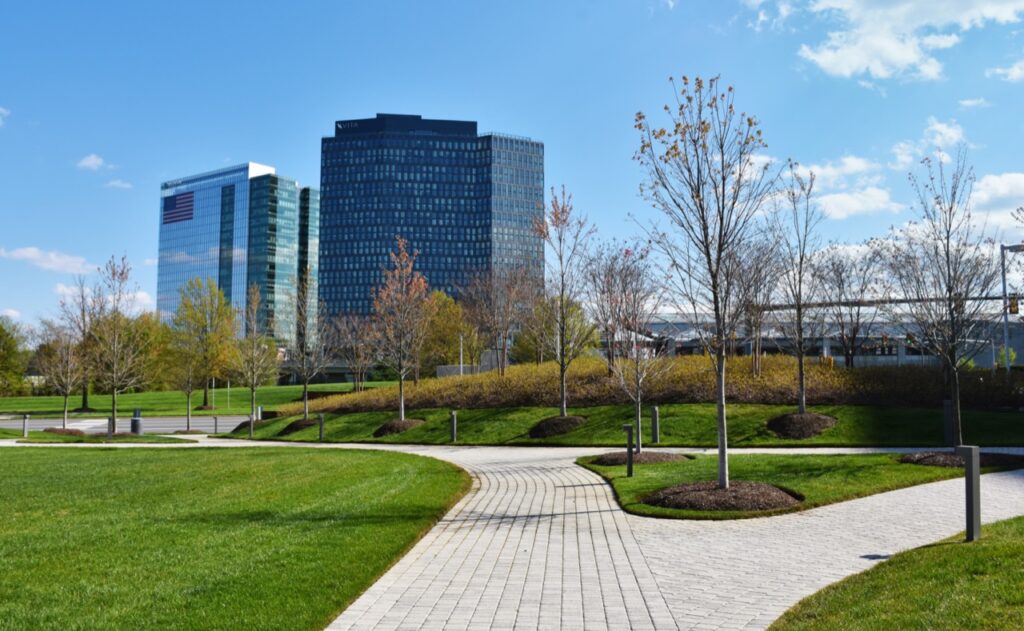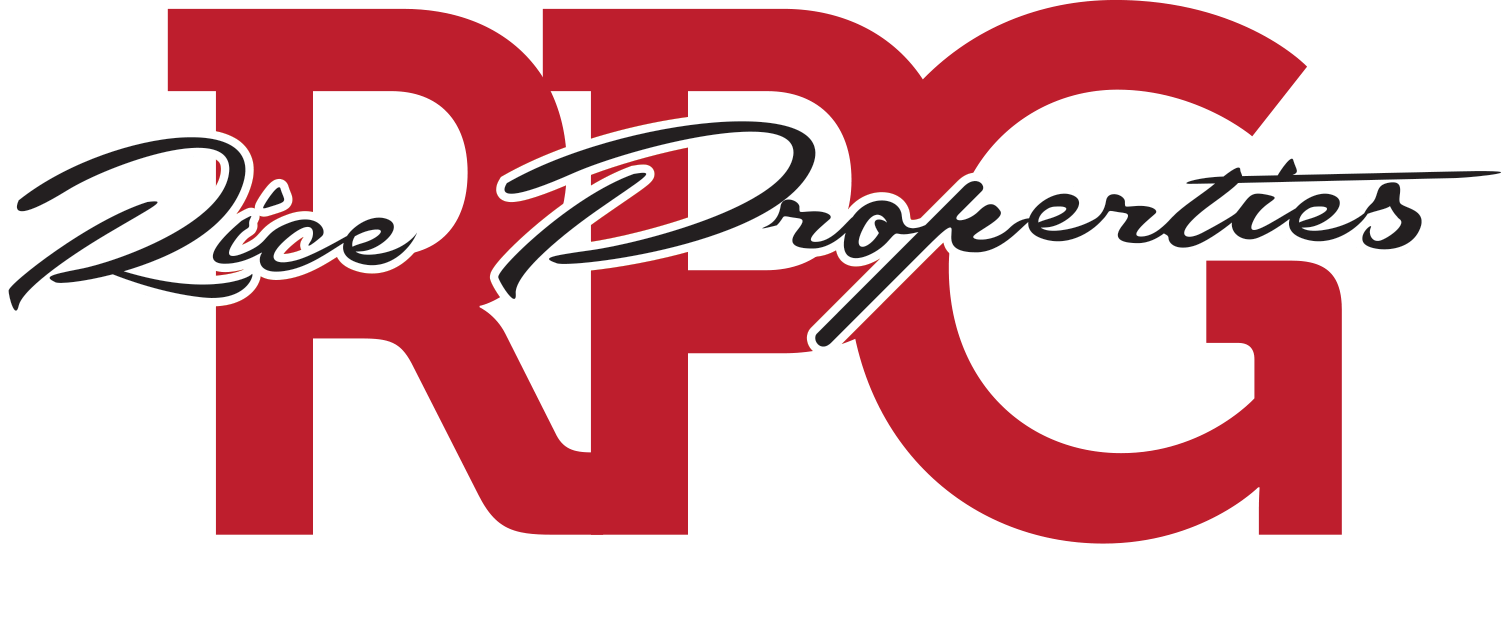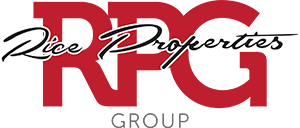Tysons Quick Facts
- POPULATION : 24,261
- MEDIAN PROPERTY VALUE: $563,000
- MEDIAN AGE RANGE: 35
- MEDIAN HOUSEHOLD INCOME: $107,388
- PROXIMITY TO WASHINGTON DC: 15 miles

Historical Significance
For most of its history, Tysons Corner was a place to go through, not a place to go to. The roads that intersect here today—Route 7 and Route 123—carried people and products to and from Leesburg and points west and into Washington. Before Tysons Corner became a “concrete jungle” it was known as Peach Grove. It did not become Tysons Corner until the 1950s when a Maryland transplant named William Tyson purchased a large tract of land and became Postmaster of the Peach Grove Post Office. The crossroads kept its rural character into the 1950s, with a corner store, a beer joint, truck farms and peach orchards. Tysons was a quiet rural intersection flanked by a few small stores and a fruit stand operated by the Tyson ancestors.
Substantial changes came in 1962 when the Fairfax County Board of Supervisors approved the Tysons Corner Shopping Center. In 1963 the Tysons area moved from a country crossroads to a giant commercial urban area with the awarding of contracts at the interchange of Route 7 and Route 123. The shopping center was proclaimed to be the largest enclosed mall in the world when it opened in July 1968.
In recent years, the influx of technology companies into Northern Virginia brought many new office buildings and hotels to the landscape. The rapid growth of Tysons has been a topic of numerous studies to transform Tysons Corner into a high-density urban center. In 2008 the Fairfax County Board of Supervisors unanimously voted to begin a 40-year plan—beginning in 2010 through 2050—that would urbanize Tysons around the up and coming four stops of Washington Metro’s Silver Line. Existing plans call for construction of a grid layout for streets around rail stations. The Arbor Row development was approved in November of 2012 and became a mixed-used area of office and residential high-rise condominiums and apartments, ground-floor retail, and underground parking within walking distance of Tysons Corner metro station. Later, in April of 2013, the County also approved Scotts Run Station South, another development containing seventeen buildings—to include six office and residential buildings, one hotel and ground-floor retail—situated near the McLean Station.
Prior to the opening of the Washington Metro Silver Line in mid-2014, the Fairfax County Board of Supervisors and the Tysons Partnership (nonprofit association that represents the area’s stakeholders) began rebranding the area as simply “Tysons”, dropping “Corner” from its name. By November 2015, the U.S. Census Bureau announced the name would officially change by the Summer of 2016.
Living in Tysons
Tysons has emerged as a place where people build friendships, families, and careers while they engage with a community of diverse collaborators working to make the city great. It now stands as the economic engine and the most densely populated urban district of Fairfax County. It has become an economic and lifestyle leader in the Washington, D.C. metropolitan region. Tysons continues to attract additional residents and investment and is poised to become more abundant with opportunities for people looking to share in a journey of progress. With over one hundred acres of place parks, open spaces, sports fields and miles of pedestrian and bike paths, there is no shortage of opportunities to get out and get active!
Tysons is home to some of the most popular shopping outlets in the state. With a variety of historical and trendy attractions, it is quickly growing to be a top tourist city. Going to Tysons Corner these days—with its shopping opportunities, condominiums and now the Metro—has the feeling of another city. With the Washington Metro’s Silver Line and the multiple stations, developers are endeavoring to make it a more walkable, livable community. Tysons is a place of amazing diversity with more than half of the residents speaking a language other than English at home, and 42% of residents are people of color. Sixty percent of the population is between the ages of 18 and 54, which means home for people across various life stages.
“Eat, Shop, and Stay”—Thanks to the two most successful retail centers in the country and tons of local retailers, Tysons is also and incredible place to eat with some of the most upscale to fast-casual and a place to explore some of the most exciting cuisines and sample wines made nearby (Afghan, Asian, American, or Italian). If you want to get away for a weekend, or stay for business, Tysons hotels will pamper you to no end—like your home away from home, especially with the options of transit in the area to get where you need to get.
What Tysons has to offer—now and in the future—are the elements that make it a magnet for individuals looking to build a life and for employers looking to find terrific employees. The city keeps growing at three times the rate of the Washington Metropolitan area and twice the rate of Fairfax County.
Education
Fairfax County Public Schools provides public primary and secondary education to Tysons residents. Five elementary and middle schools in the Tysons area are:
- Freedom Hill Elementary School
- Joyce Kilmer Middle School
- Westbriar Elementary School
- Spring Hill Elementary School
- Westgate Elementary School
- Resident high school students can attend:
- George C. Marshall High School
- James Madison High School
- Langley High School
- McLean High School.
Private schools for students fall under the Fairfax County school system and there are many in the Tysons-McLean-Vienna-Falls Church area to choose from. Some top ranked schools include, Congressional School, BASIS Independent McLean, and The Langley School. Tuition costs will run slightly higher than Virginia private school average tuition of $14,320 for the 2022 school year.


